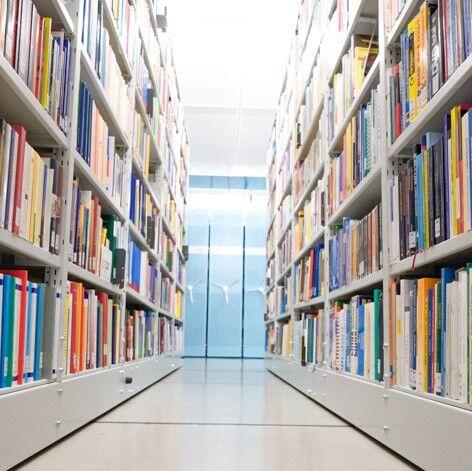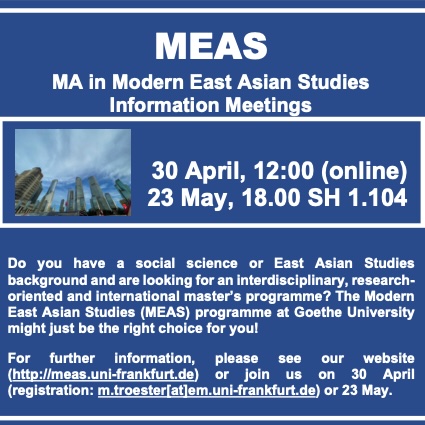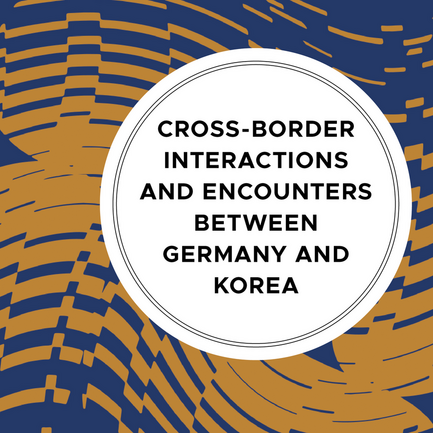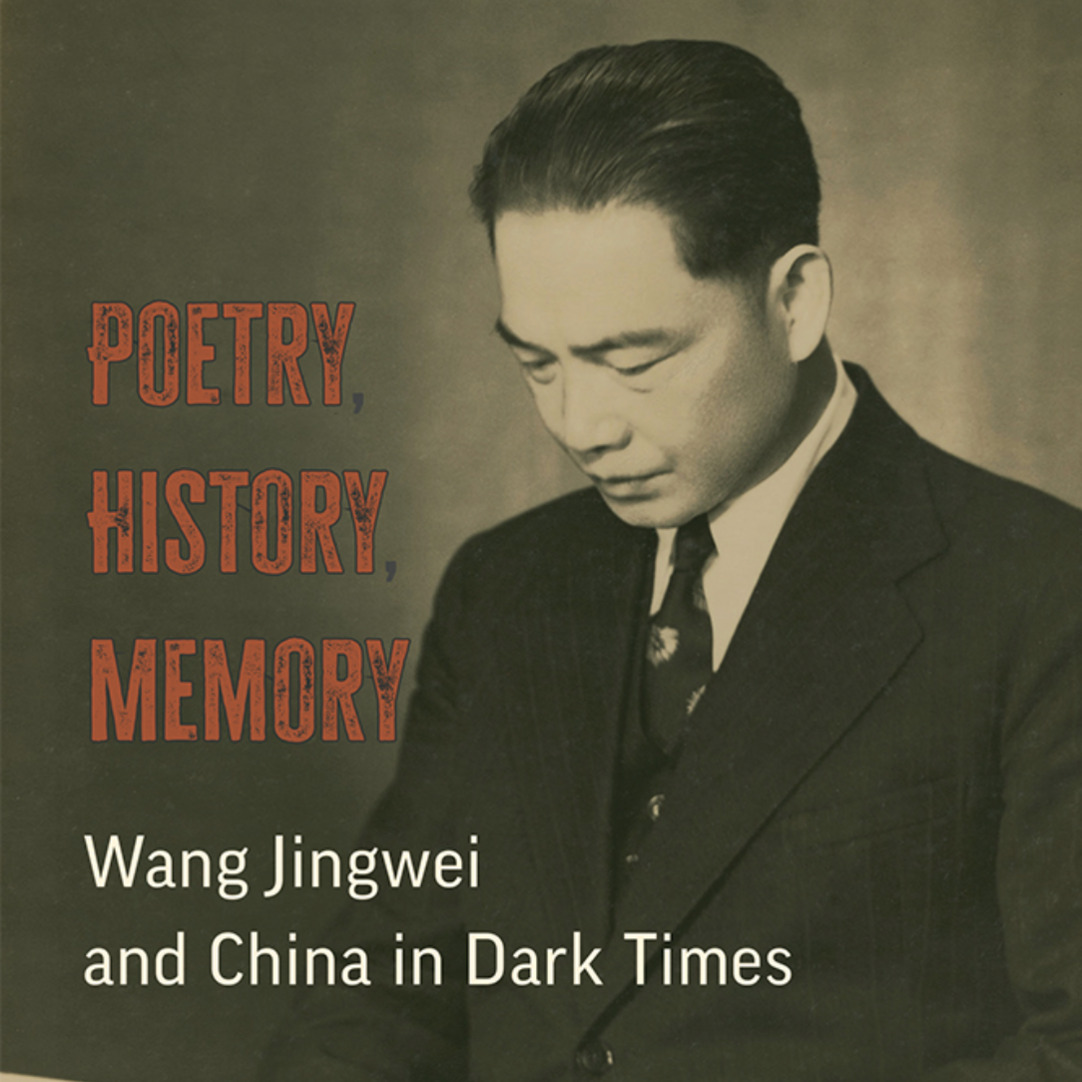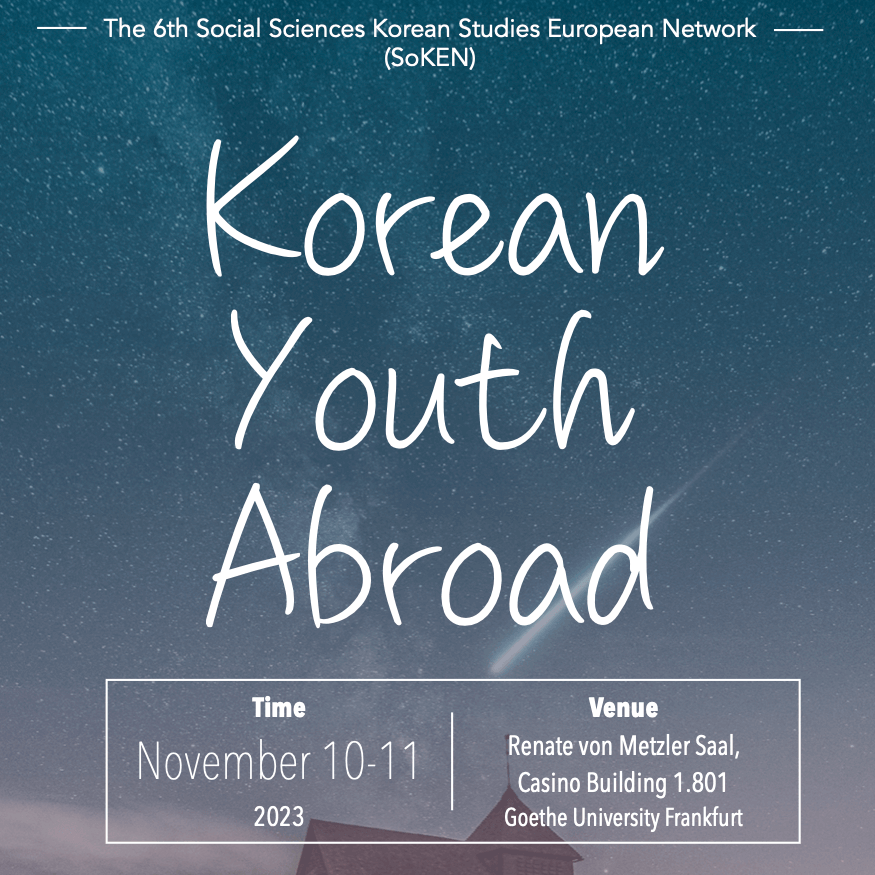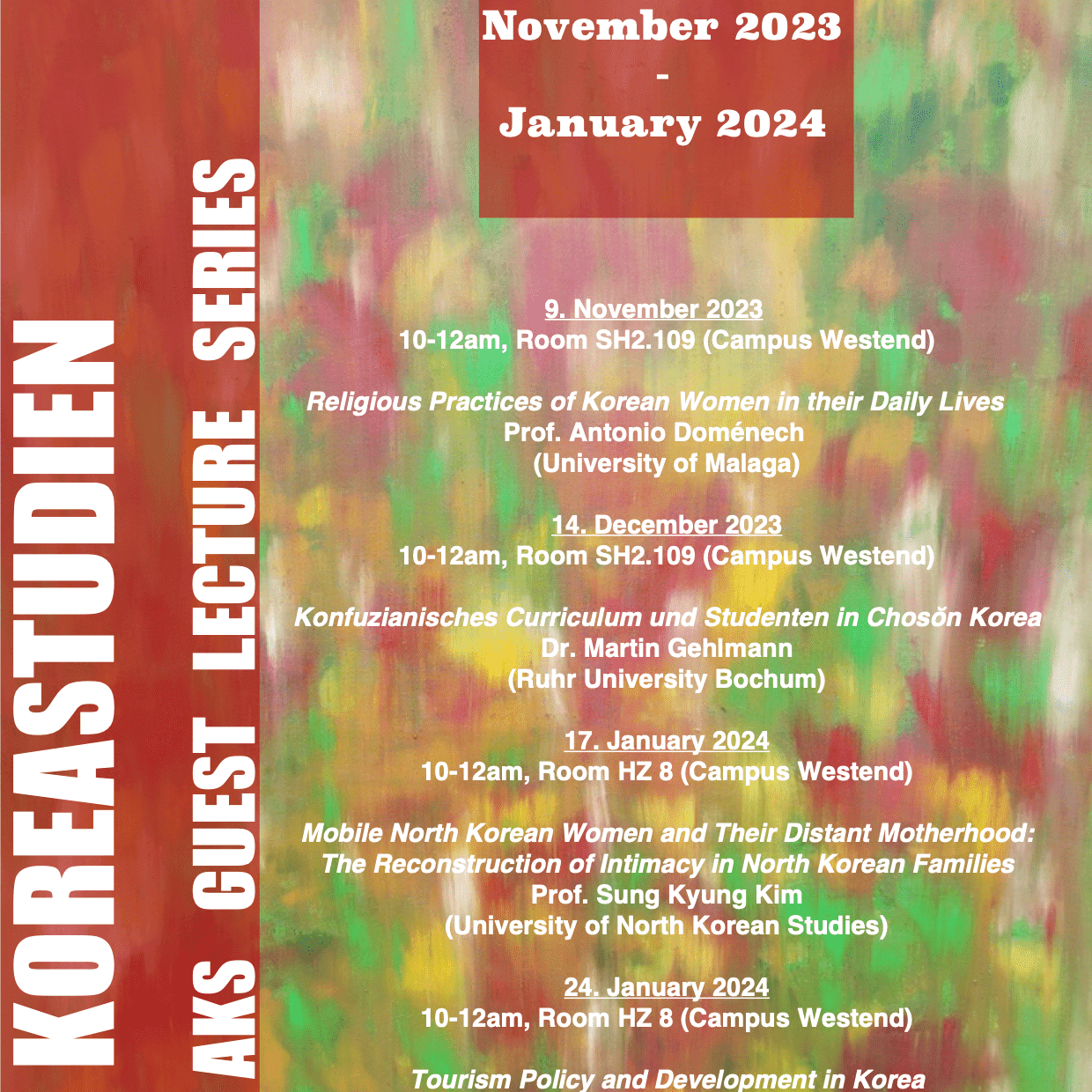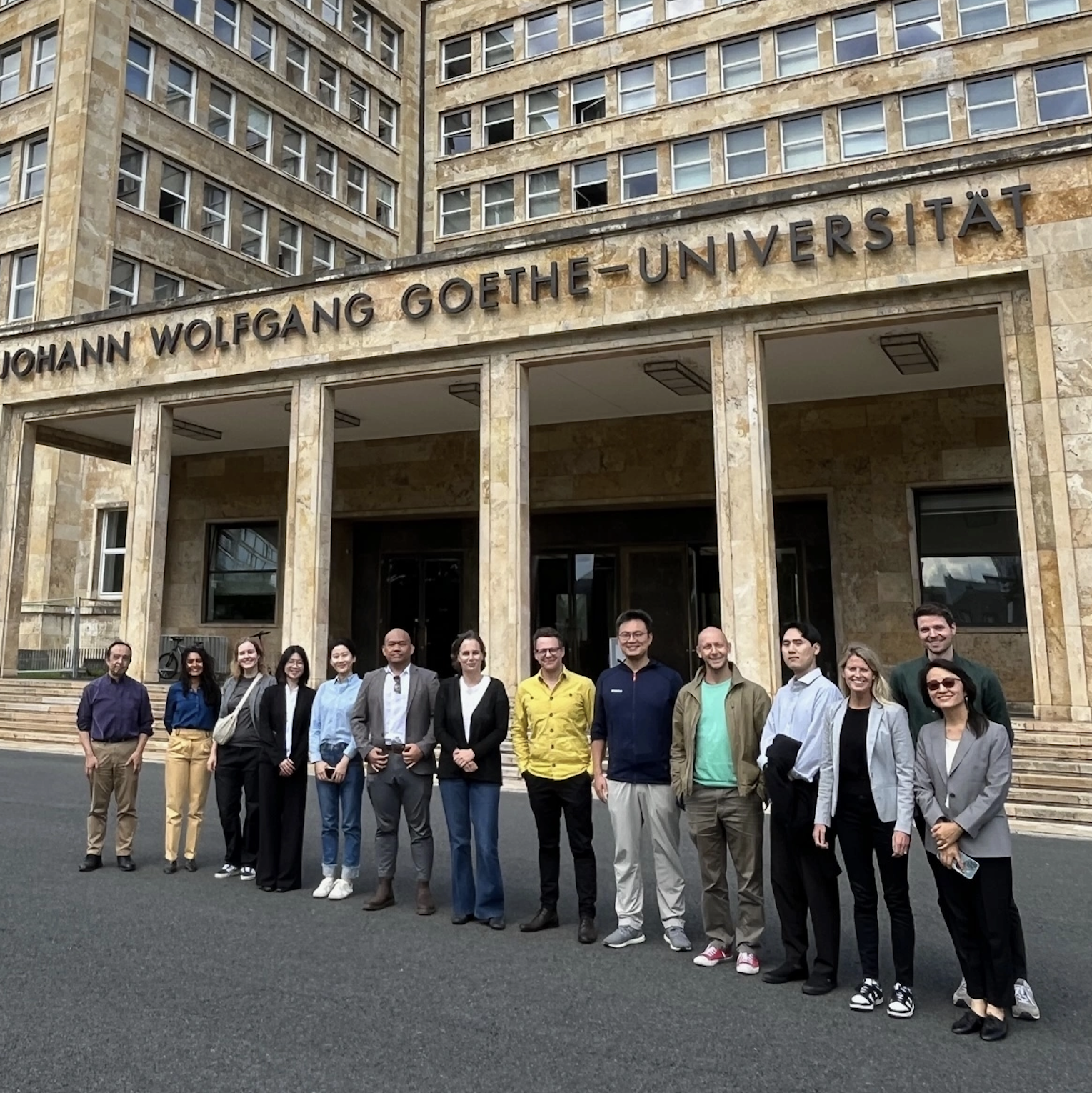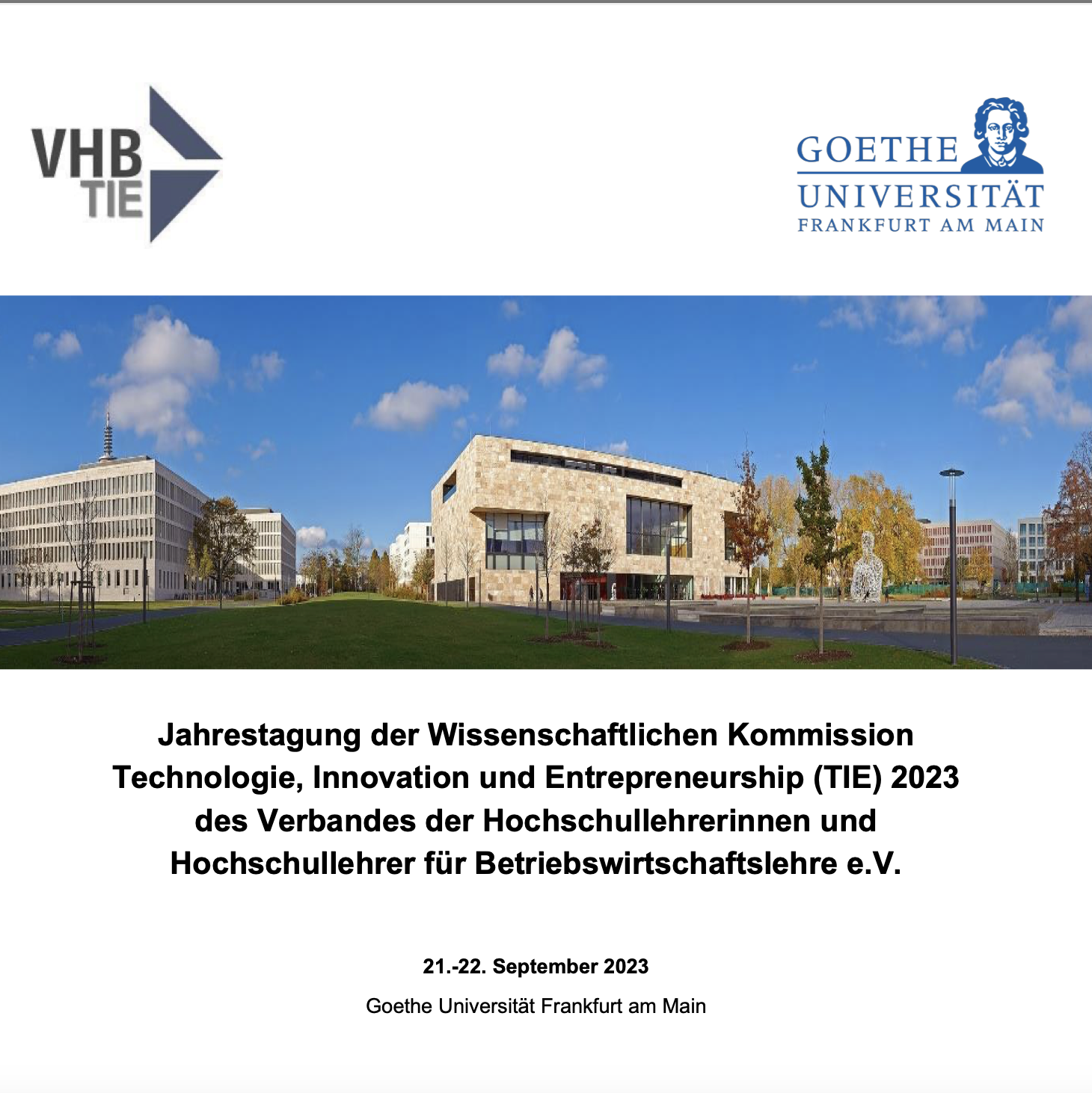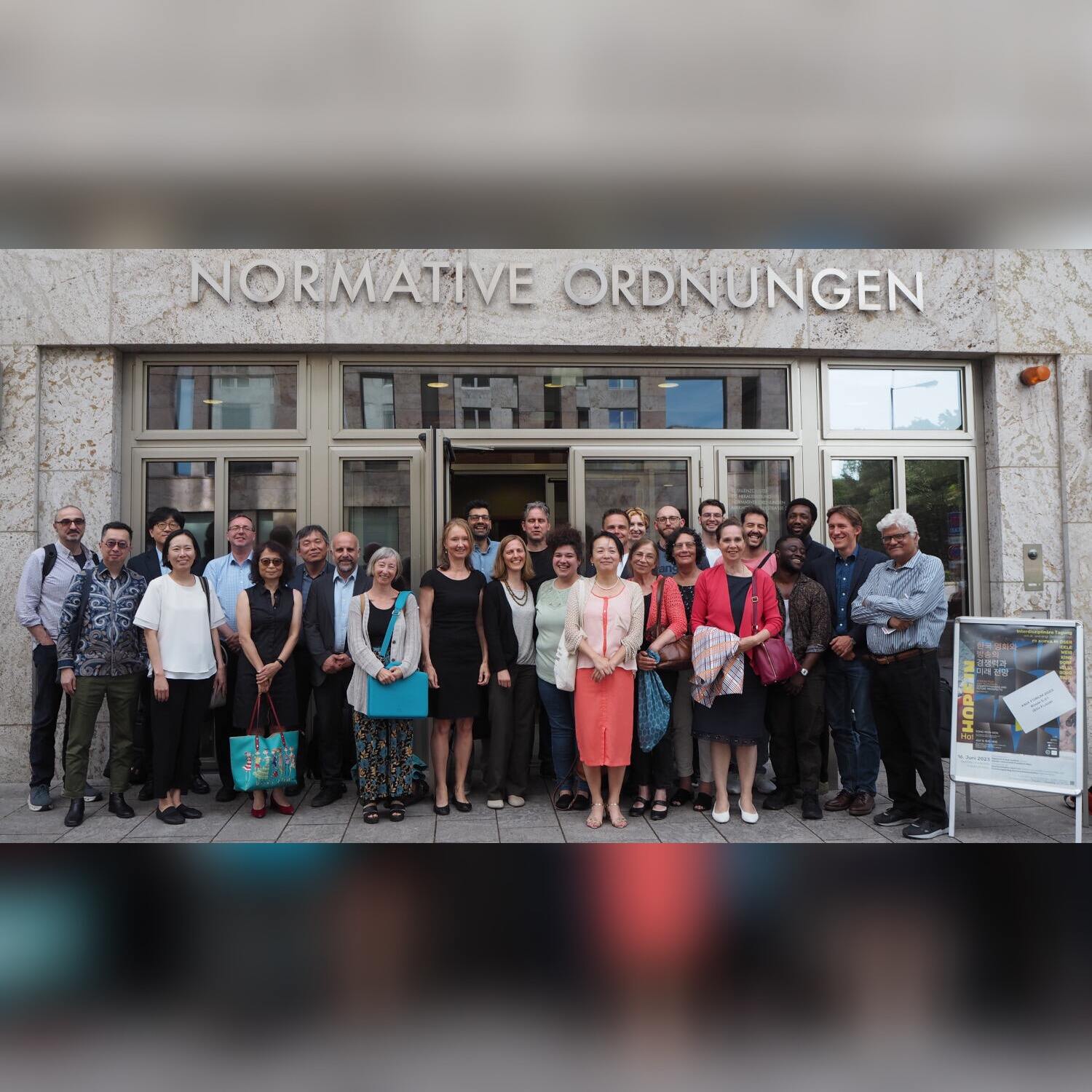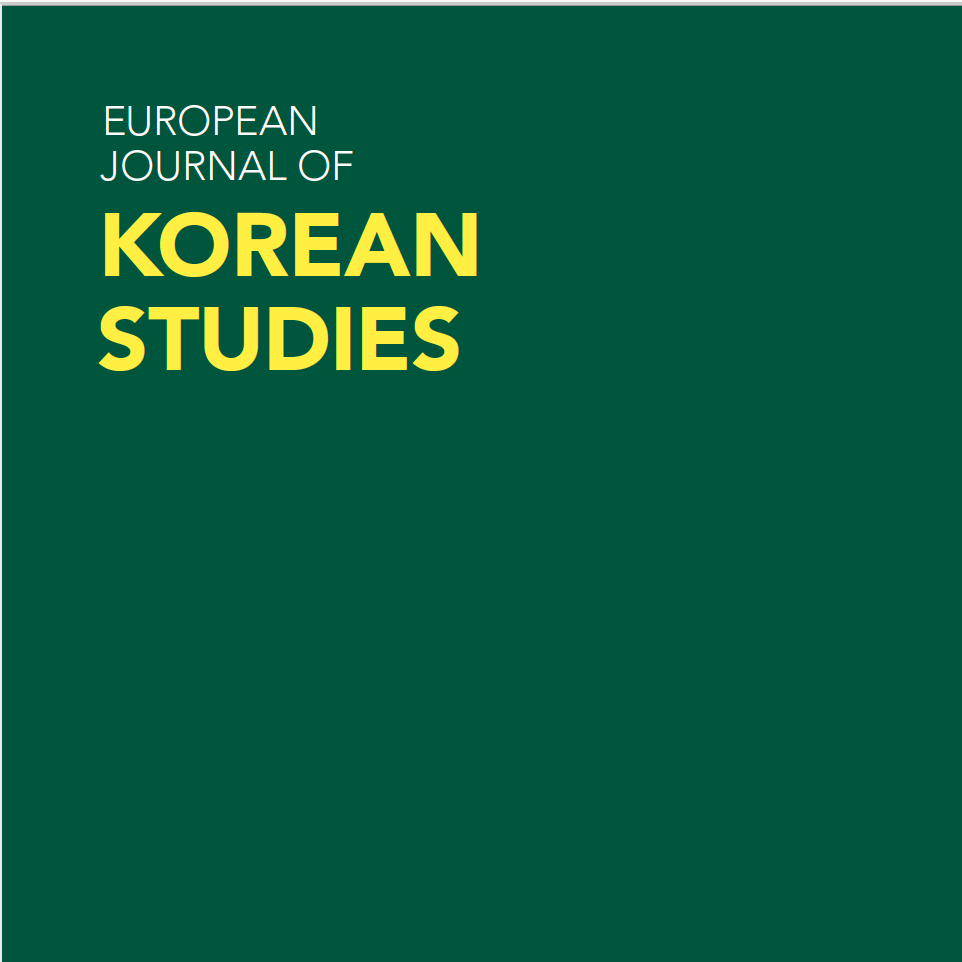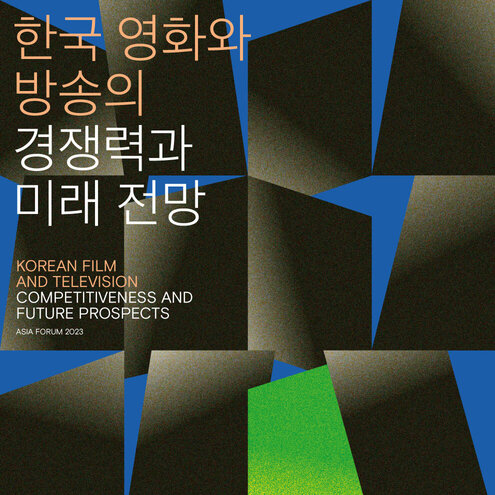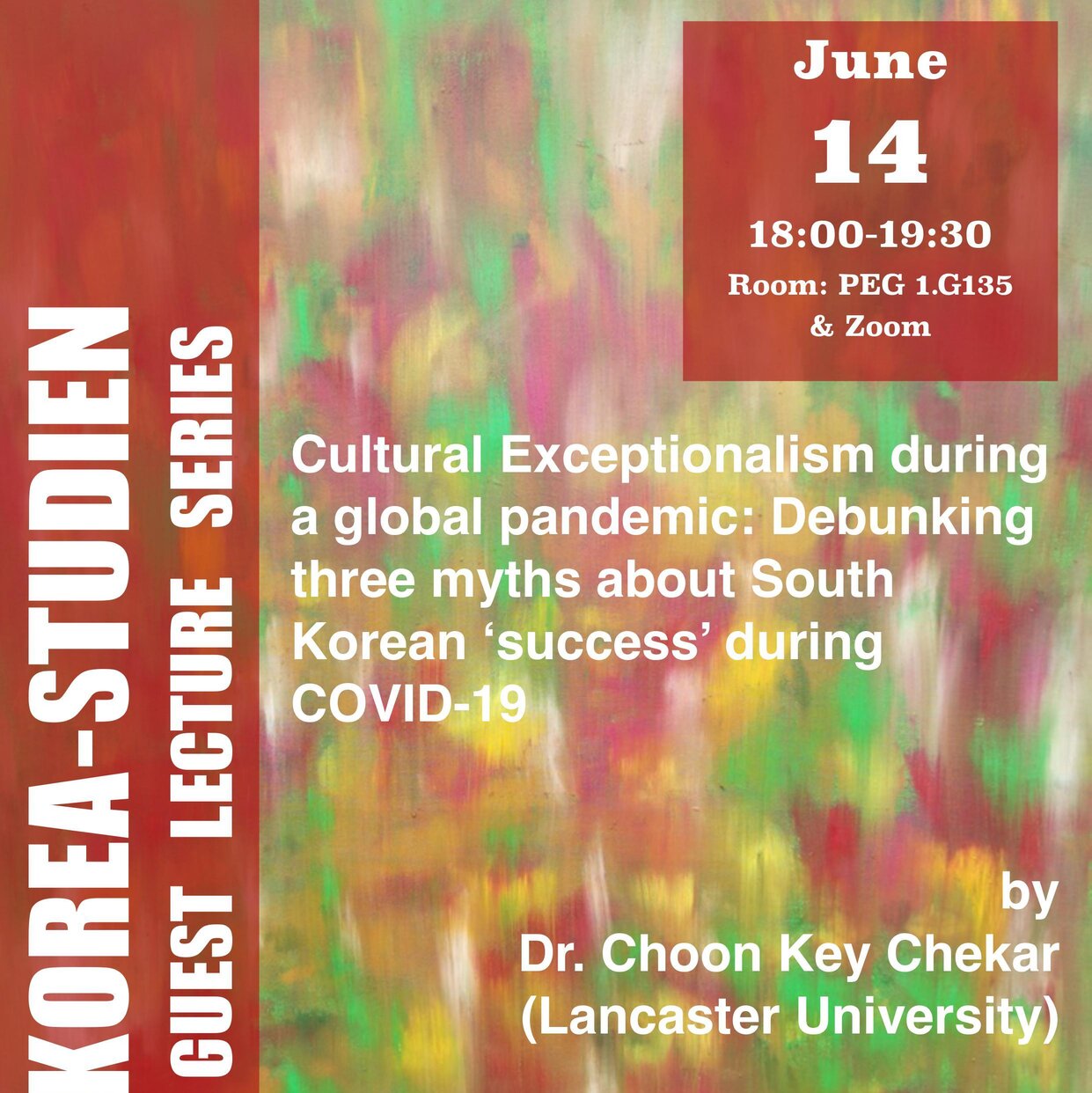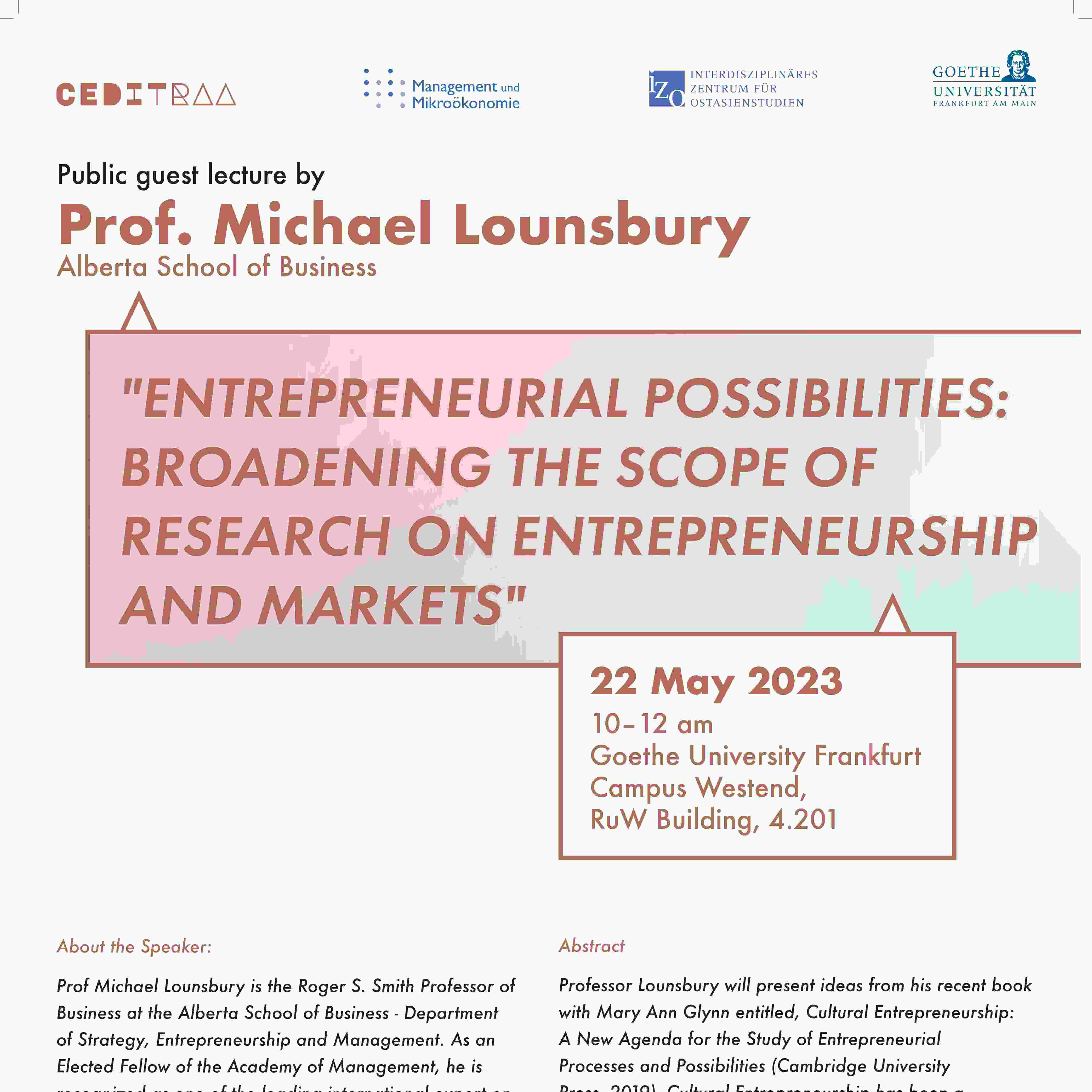News – IZO Events

on IZO events and publications.
on IZO events and publications.

on IZO events and publications.
on IZO events and publications.
Search for all News
- Announcements
- Board meetings
- Current Research
- IZO Events
- 6th Social Sciences Korean Studies European Network' (SoKEN)
- Korean Studies Guest Lecture Series - winter semester 2023/24
- The IZO ECRN Workshop on "Asia and the liberal global financial system: contestation, compliance or cooptation?" took place on 30 August/1 September 2023
- TIE Conference 2023 on 21/22 September 2023
- IZO successfully organised the Second Asia Forum in Frankfurt on 6/7 July 2023
- IZO Asia Forum Keynote by Dong Yeon Won: "Korean Film and Television - Competitiveness and Future Prospects"
- Korean Studies Lecture: "Covid Exceptionalism: Debunking Three Myths about South Korean 'Success' During the Covid-19 Pandemic"
- Guest Lecture by Prof. Michael Lounsbury: "Entrepreneurial Possibilities: Broadening the Scope of Research on Entrepreneurship and Markets"
- Book Talk: "Korea and the Global Society"
- Lecture series "Richard Wilhelm Lecture" with Prof. Dr. Fan-sen Wang
- Workshop: "Korean Diasporic Youth in the South" on 4 February 2023
- IZO ECR Network Workshop with Prof. William Callahan on 27 January 2023
- Workshop "Korean and German Encounters and Interactions" on 20/21Jan 2023
- Prof. Ann Heylen on Digitization of Scholarly Publishing in East Asian Popular Culture Research
- 4th Korean Popular Culture Workshop on 16 November 2022
- Symposium "Comparing and Transferring Law and Legal Expertise. The Role of Japan"
- China-Russia Relations in Light of the Ukraine War | 19 July, 18.30-19.45 | Recording available on Youtube!
- "The Moral Duties of Art: Yan Geling & Yang Lian visit Goethe University | Recording available on Youtube!
- Upcoming: IZO Panel Discussion with Yan Geling and Yang Lian: 'The Moral Duties of Art: Chinese Literary Exiles in Germany' on 19 May 2022
- Guest Lecture by Prof. Dr. Marta Hanson: "Understanding is Within One’s Grasp, The World Within the Hands in the Classified Canon, 1624"
- Online Lecture Series of Korean Studies Frankfurt: 'Book Talks - Researchers Present their Published Monographs'
- Workshop: “Korean Migration in Europe: Challenges and Impacts”
- 3rd Edition of the Korean Popular Culture Workshop
- Workshop: “Korean Im/migrants in the South”
- Guest Lecture by Prof. Björn Alpermann on China’s Xinjiang Policy
- IZO Early Career Researcher Network Meeting with Prof. Barry Naughton
- Prof. Barry Naughton's Talk on the "China Summer 2021"
- Summer Semester 2021 – Lecture Series “China on the Way to Becoming the Leading Economic Power”
- MA Modern East Asian Studies
IZO Events
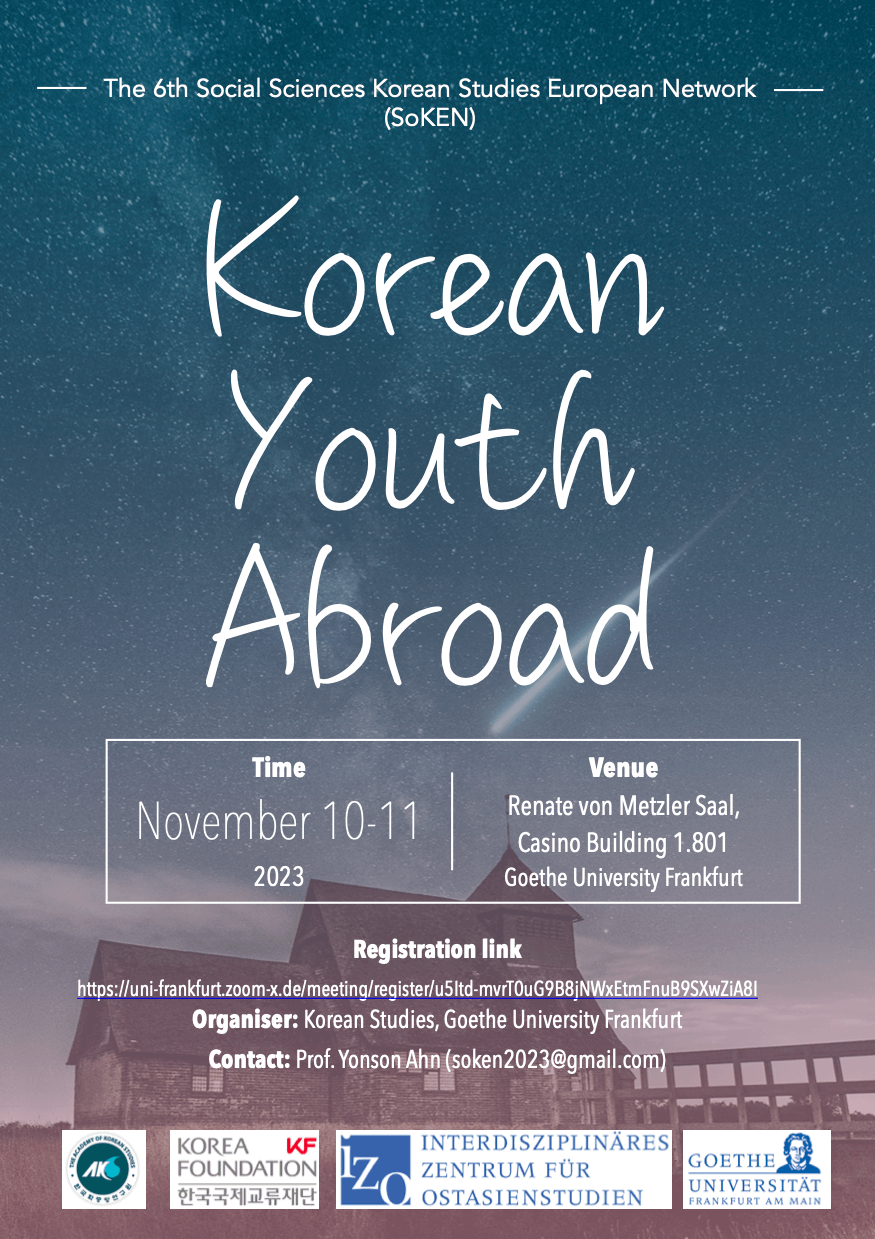
18 excellent lectures on Korean youth abroad, such as the second-generation Korean diaspora, young temporary migrants (e.g. working holiday visa holders and development workers) and Korean students abroad have been selected for the conference. The keynote speech will be given by Dr Sunhee Koo (University of Auckland). This conference will greatly contribute to the discussion and production of research in Korea-related social sciences in the European and global Korean Studies community and serves to expand the network for sustainable exchange.
The conference can be attended on site in the Renate von Metzler Saal on Campus Westend (Casino 1.801) or via Zoom (https://uni-frankfurt.zoom-x.de/meeting/register/u5Itd-mvrT0uG9B8jNWxEtmFnuB9SXwZiA8I).
10 November 2023
10:20-10:50 Welcome remarks
Prof. Yonson Ahn (Korean Studies, Goethe University Frankfurt) Mr. Byung-Kuk Woo, Director, Korea Foundation Berlin Office
11:00-12:30 Panel 1 Korean Youth in the Global South
Chair: Ruixin Wei
1. Jihye Kim (University of Central Lancashire & Goethe University Frankfurt) Ethnic Churches and Second-Generation Korean Brazilians in São Paulo
2. Jeong Taek Lim (University at Albany) Ethnic Identity of Korean-Vietnamese Adolescents Living in Vietnam: A Qualitative Study with an Ecological Approach
3. Young Su Park (Seoul National University) Online Of Two Velocities: Bifurcated Life Trajectories and Visions of Korean Aid Workers in Ethiopia
12:30-14:00 Lunch
14:00-15:30 Panel 2 Korean Youth in the Global South
Chair: Lynne Soon-Chean Park
4. Jihye Son (Korea University) A Comparative Study on the Language and Bicultural Identity of the Next Generation of Koreans in Brazil and Argentina
5. Ananya Mahir (Independent Researcher) Role of Young Koreans in Shaping Korea's Image in India
6. Kyungmin Bae (University of the Philippines) Return Migration to Where I was Not Born: Two Korean-Filipino Youth's Experience
16:00-17:30 Panel 3 Experiences of International Students
Chair: Bonnie Tilland
7. Jeehun Kim (Inha University) Multiple Purpose/Journey Migration: Lived Experiences of Korean University Students and Recent Graduates in Singapore
8. Hyunah Cho (University of Leeds) Musical Engagement and Subjective Wellbeing amongst Korean Students in the UK
9. Sung Un Gang (Technische Universität Berlin) Breaking Boundaries: Queer Korean Youth and Their Experiences of Studying Abroad
11 November 2023
10:00-10:50 Keynote Lecture
10. Sunhee Koo (University of Auckland) Culture, Meaning, and Overseas Korean Youth Identity: A Research Prospectus for the Past and Future
11:00-12:00 Panel 4 New Generation Koreans
Chair: Jeehun Kim
11. Ruixin Wei (Goethe University Frankfurt) The Ethnic Boundary-Making/Unmaking of Korean Chinese Youth in the Consumption of Korean Popular Culture
12. Lynne Soon-Chean Park (University of Auckland) Otherness, Acculturation and Social Identity: A Qualitative Inquiry of the Emergence of Ethnic Identity among 1.5- and 2nd-generation Korean New Zealanders
12:00-13:30 Lunch
13:30-15:00 Panel 5 Culture, Soft Power and Korean Youth
Chair: Hyunah Cho
13. James Jungho An (Independent Researcher), Yoona Kim (KAIST), Wonjae Choi (Seoul National University), Myunggu Jung (KAIST) Changes in the Notion of Success Through Hip Hop Music of Young Korean-American Rappers
14. Bonnie Tilland (Leiden University) King Sejong Institutes, Korean Teachers, and Soft Power
15. Carolyn Choi (Princeton University) Online At the Intersection of Race and Global Nation-Building: English Language Travel, Labor Market Segmentation, and Low-Wage Work among South Korean Working Holidaymakers in Australia
15:30-17:00 Panel 6 Ethnic Entrepreneurship and Employment
Chair: Kyungmin Bae
16. Jingeum Lee (Goethe University Frankfurt) Intercultural Business Communication in Korean Companies Near Frankfurt Am Main
17. Stephen Cho Suh (San Diego State University) and Brian Woohyun Kim (Seoul National University) Online Serving Diaspora in the Homeland: Korean American Culinary Entrepreneurs in Seoul's Food and Beverage Industry
18. Juhee Jeong (Heidelberg University) and Xiaoying Jin (Heidelberg University) Online The Contribution of Sending Country's Policy Initiative to Youth Mobility: Case Study of South Korea's Overseas Employment Support
IZO Events
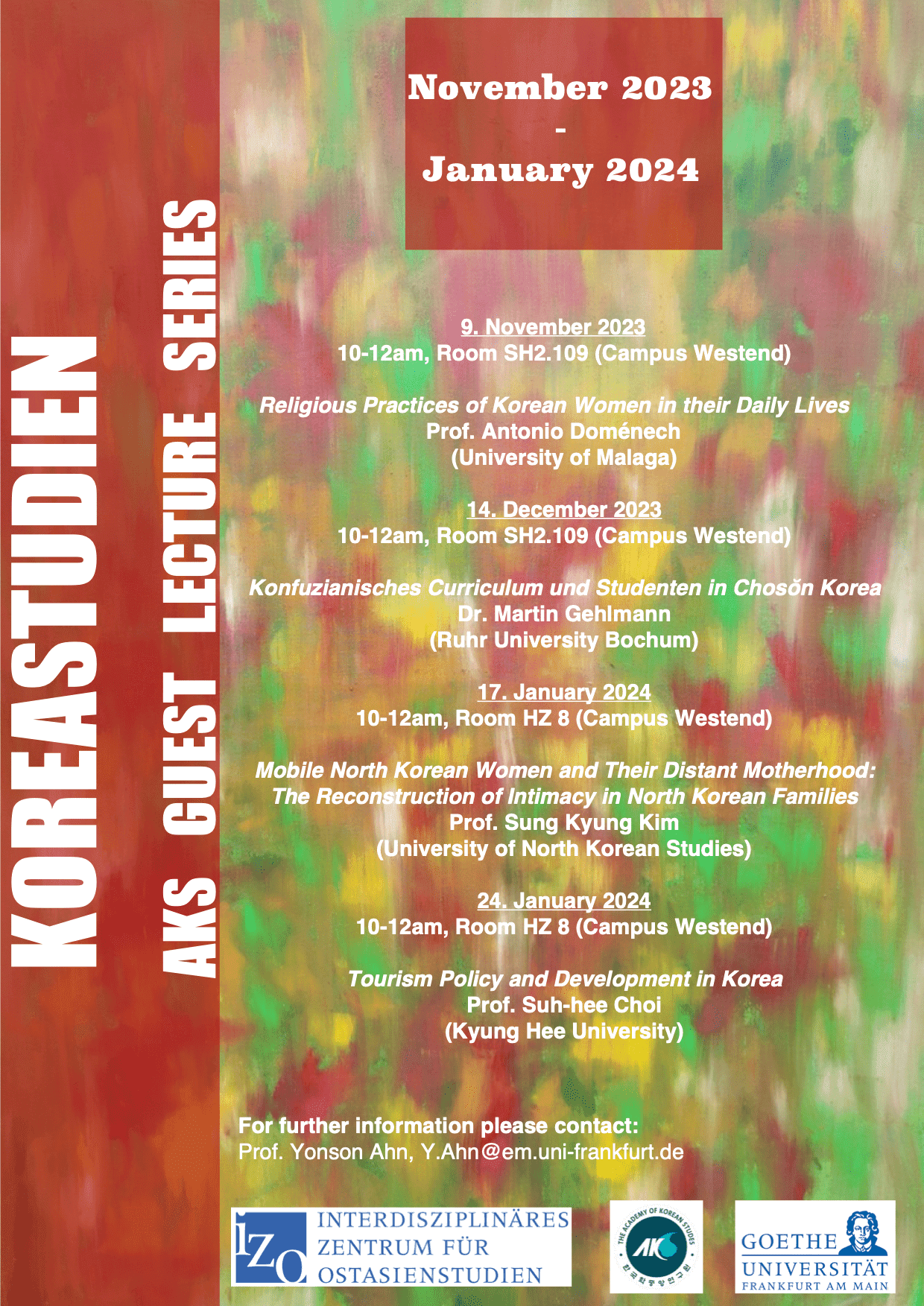
For further information please contact: Prof. Yonson Ahn, Y.Ahn[at]em.uni-frankfurt.de
IZO Events
This international workshop, which was funded by IZO's Early Career Researcher Network Fund, brought together 13 participants from 8 countries (plus 4 virtual participants) to explore the changing role of Asia within the global financial system.
The rules, norms, and procedures that govern cross-border money and finance are central cornerstones of the global economy. In the liberal financial order, the underlying principles which inform this governance of finance enable the free flow of capital across borders as well as the creation of private profit to achieve 'efficient' allocation of resources. These norms of how the global financial system ought to operate were largely put in place by the United States and followed by European states. Asia now accounts for an increasing share of the global financial system. In 2020, Asian financial systems accounted for 34.3%, 43.1% and 29.3% of global bond, stock, and futures markets, respectively. However, contemporary analyses of the global financial order tend to neglect the growing importance of Asia: either the focus is on China's challenge of liberal markets or (other) Asian countries are analysed and compared at a national or regional level. This workshop aimed to bridge these levels of analysis by exploring the globalisation of Asian financial systems/actors and their relationship with the liberal financial order, exploring questions such as:
• How do Asian financial actors integrate into the global financial system?
• Do they contest, co-opt, or comply with liberal norms of market organisation?
• How do they enact economic and financial statecraft, and what responses do they face in international markets? • How do global financial actors interact with Asian financial systems?
• What are the geopolitical and geoeconomic implications of these developments?
Before the workshop, we also held an event on 'publishing in academic journals' for early career researchers that was also attended by 10-15 people, mostly ECRs from Goethe University. More information about this event, which was aimed at demystifying the academic publishing process, featuring a Q&A with a former journal editor (Lena Rethel, Review of International Political Economy), can be found here.
IZO Events
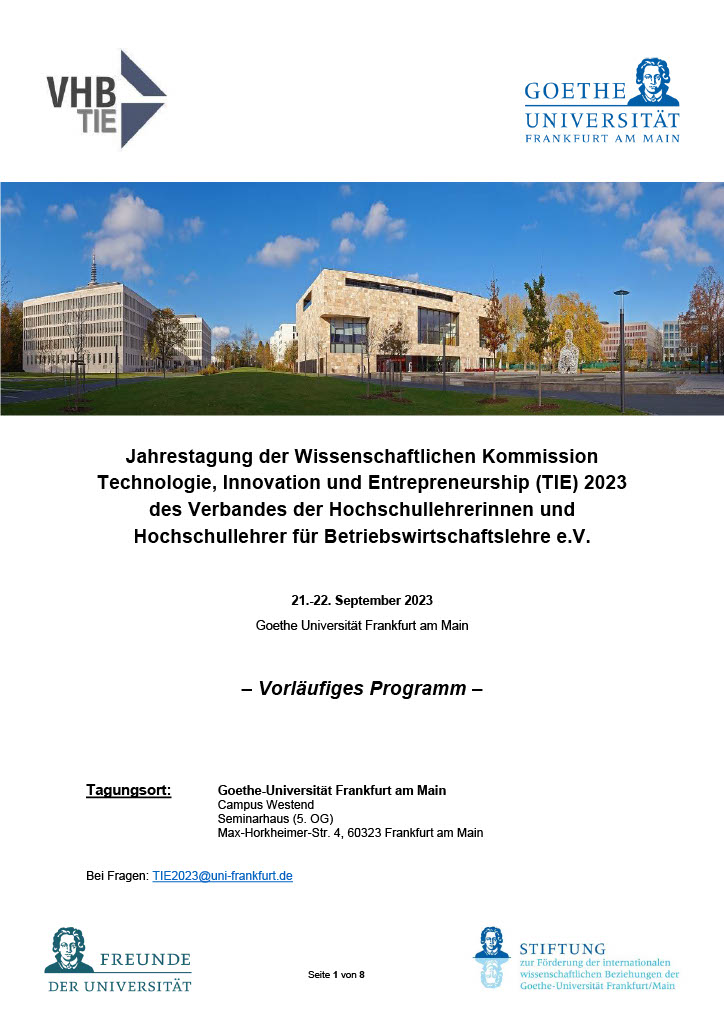
On 21 and 22 September 2023, the TIE Conference 2023 (Annual conference of the "Wissenschaftliche Kommission Technologie, Innovation und Entrepreneurship - TIE") of the German Academic Association of Business Research, Section Technology, Innovation and Entrepreneurship will be held in Frankfurt.
The conference, organised by Prof. Dr. Cornelia Storz (Innovation and Entrepreneurship), Prof. Dr. Simone Wies (Marketing Strategy and Performance), and Prof. Dr. Lars Schweizer (Strategic Management) will take place on Goethe University Frankfurt's Campus Westend.
IZO Events
The Asia Forum workshop consisted of four parts. Beginning with a theory-driven discussion on the concept of soft power, its added value and limitations, Gary Rawnsley and Benjamin Tallis reflected on soft power and the cultural implications of current political affairs. Song Hwee Lim presented an exciting link between soft power and geopolitics, using films and documentaries to illustrate geopolitical dynamics in Ukraine, Hong Kong and Taiwan. Michael Keane concluded the theoretical framework session with a review of soft power, focusing on its application and appropriation in the case of China and East Asia as a whole.
The second part focused specifically on Hallyu and its connection to South Korean soft power. Dal Yong Jin presented the emergence of Korean digital soft power and how the Korean government turns its cultural exports into diplomatic branding. Sangjoon Lee reviewed the history and transformation of the Korean film industry since the 1990s and the reasons for its success. Mark R. Plaice reflected on Korean soft power and the impact of Korean studies education. The session ended with a panel hosted by Cornelia Storz titled “Can the “Soft Power" Concept Explain the Global Success of Korean Culture and its Impact?".
The third part of the workshop broadened the perspective by looking at the soft power policies of other East Asian states. Nissim Otmazgin discussed Japan's long history of soft power and the extent and effort of utilising such assets in Japanese cultural and foreign policy. Looking at the case of Taiwan, Ting-ying Lin discussed the newly established institution TAICCA and how the Tsai government rebranded Taiwanese national values through the creative industries. Paola Voci critically dissected the inner workings of "soft power" policies and their ambiguous connection to official and marginalised cultural products, looking in particular at China's soft power as a "cracked game". Ying Zhu compared the emerging K-pop industry to China's declining soft power. Finally, Keun Lee presented his findings on the transformation of the Korean film industry, in which market liberalisation, the state and key actors played a pivotal role in revolutionising the industry.
In the spirit of the CEDITRAA project's transregional outlook, we also invited scholars to review Hallyu in its applications and implications for African countries in the concluding session. Olusola Ogunnubi discussed Nigeria's potential to become a regional cultural hub exercising cultural soft power in Africa. Suweon Kim analysed potential opportunities in South Africa that have been neglected by Korean companies. She proposed a South African-South Korean solidarity in the light of cultural empathy, collective pride, and exclusion. Usaku Wammanda considered the impact of the K-drama concept on Nigerian culture, which extends our previous soft power discourses. A final panel chaired by Vinzenz Hediger entitled "Soft Power: Core Element, Complement or Compensation?" concluded our two-day conference.
In addition, the public lecture on “Korean Film and Television – Competitiveness and Future Prospects" by film producer and CEO of Realies Pictures Dong Yeon Won attracted a large audience to Goethe University's Renate-von-Metzler-Saal in the evening of 6 July. Moderated by Prof. Yonson Ahn of IZO, the lecture and discussion with Mr Won provided first-hand insights into practical aspects and success factors in the world of Korean film and TV series production.
We would like to thank all participants who came to Frankfurt for contributing to a lively, critical and fruitful debate that will surely continue in various follow-up formats.
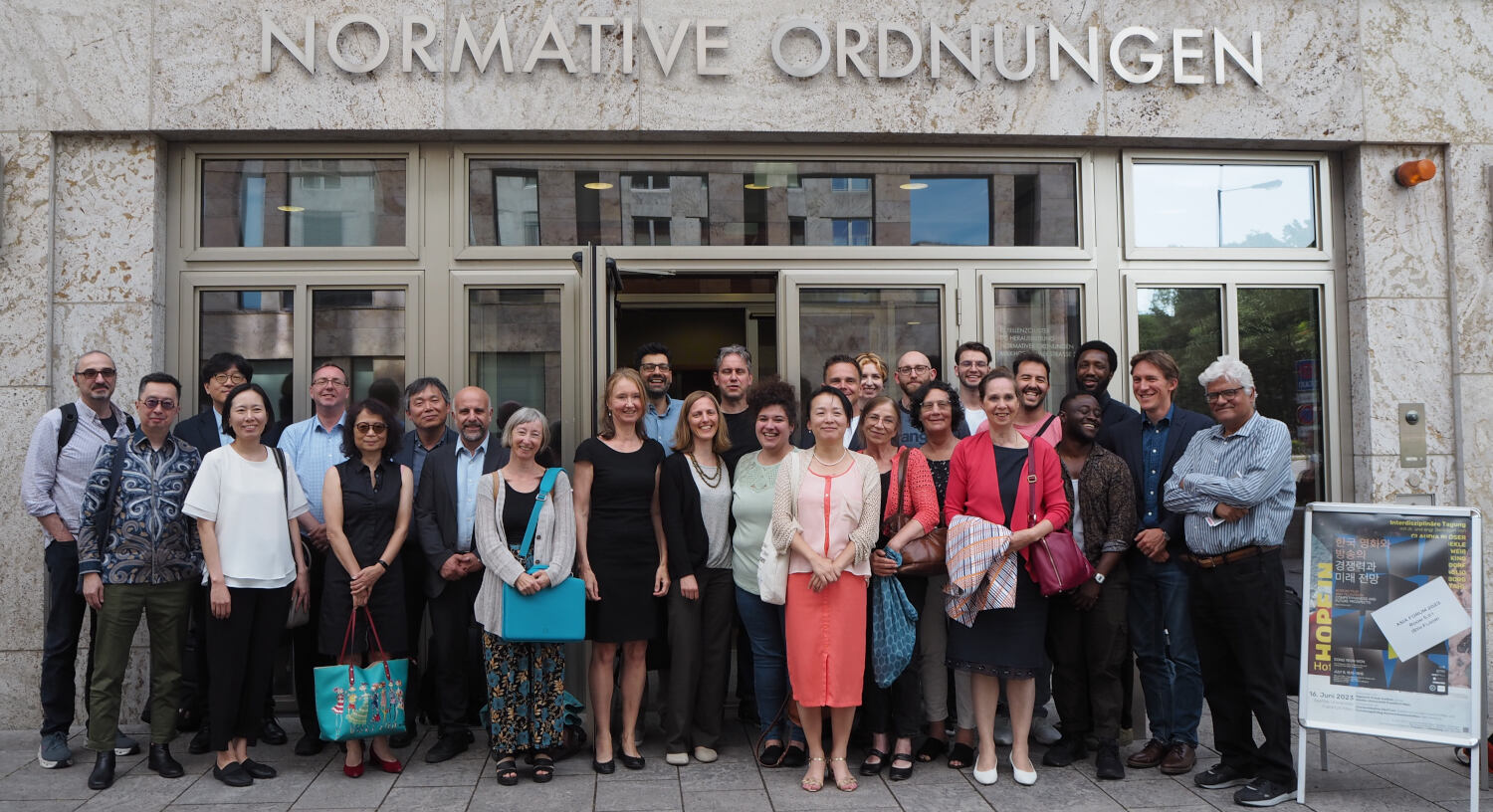
IZO Events
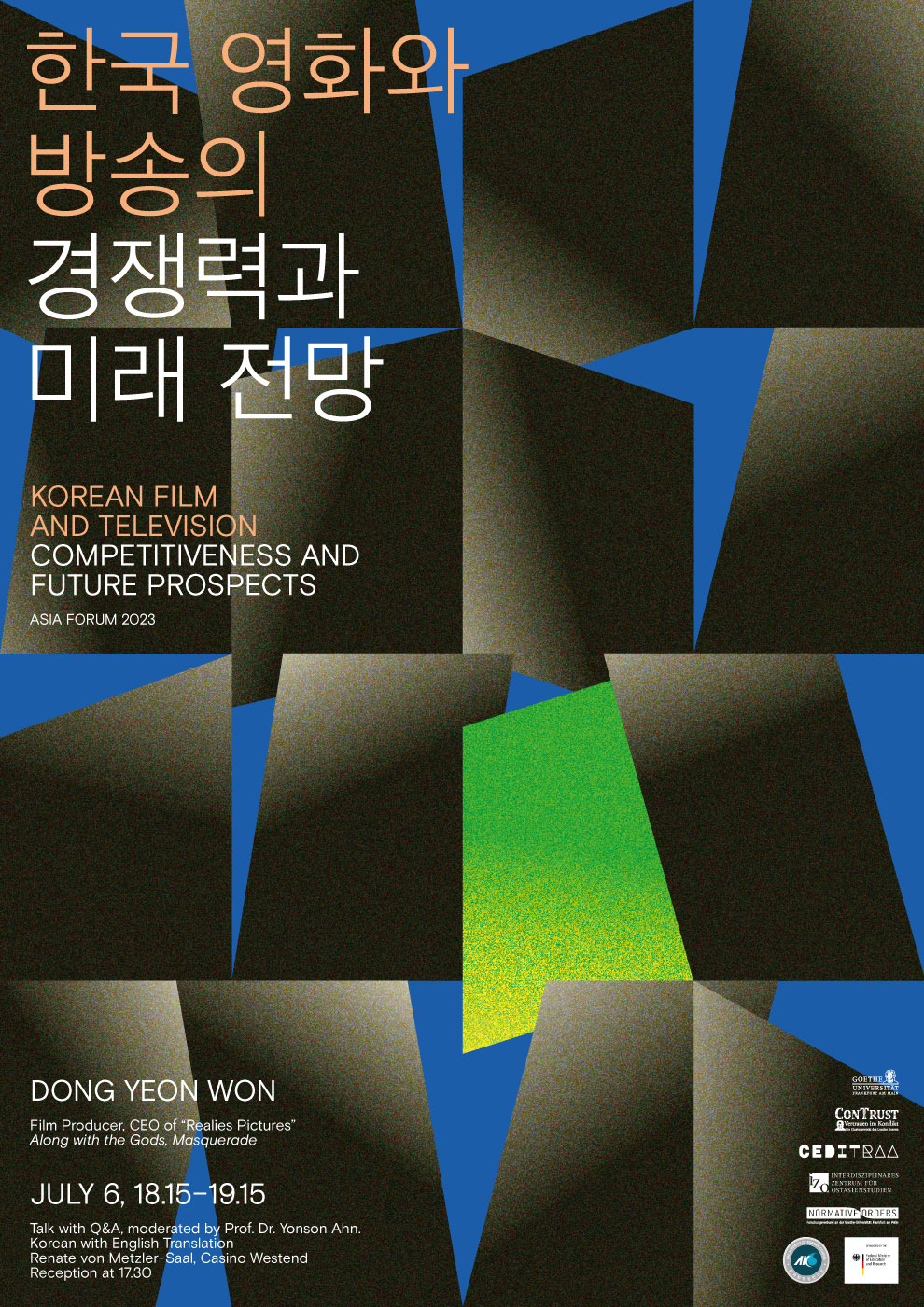
After the first successful IZO Asia Forum in 2019 and an involuntary break due to the pandemic, we are pleased to be able to hold the second Asia Forum in Frankfurt in July 2023. This year, the event will focus on Korea and the global appeal of Korean culture.
Korean film and streaming formats have been becoming increasingly popular in recent history, with South Korea becoming one of the international media industry key players. What are the reasons and mechanisms behind this success story? And what might the future hold? These questions and more will be tackled by Dong Yeon Won in his keynote Korean Film and Television – Competitiveness and Future Prospects. As film producer and CEO of “Realies pictures", he gives insight into the industry and talks about his experience surrounding the production of internationally successful formats such as Along With the Gods and Masquerade. The keynote is part of the Asia Forum 2023, organized by IZO – Interdisziplinäres Zentrum für Ostasienstudien together with the research initiative ConTrust: Trust in Conflict and the joint research project CEDITRAA (Cultural Entrepreneurship and Digital Transformation in Africa and Asia) at Goethe University Frankfurt. The talk will take place on July 6th 2023 at 6:15 p.m. at the Renate von Metzler-Saal at Casino Westend with a reception at 17.30. Admission is free, the talk is in Korean and Englishhttps://www.izo.uni-frankfurt.de/ | https://contrust.uni-frankfurt.de/ | https://www.ceditraa.net/
IZO Events
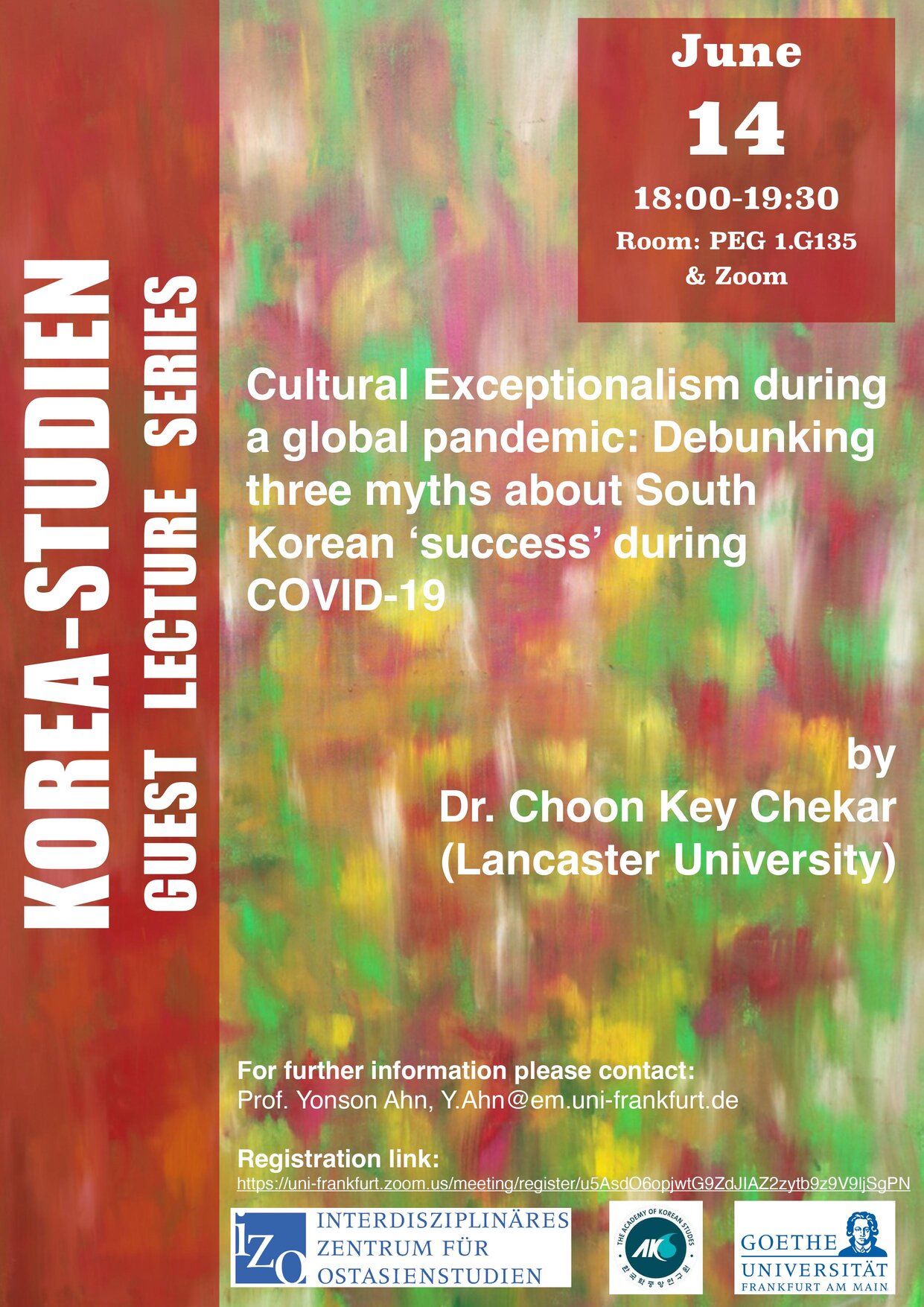
The lecture, titled "Covid Exceptionalism: Debunking Three Myths about South Korean 'Success' During the Covid-19 Pandemic", will take place at Campus Westend (PEG1.G135) as well as online via ZOOM (ZOOM registration link).
Dr. Choon Key Chekar, a Senior Research Associate at Lancaster Medical School, Lancaster University, explores South Korea's public healthpolicy related to COVID. COVID-19 has presented challenges across the globe that led to several shared lessons to be learned. Yet, we have been inundated with accounts that characterise national pandemic responses as inherent and unique to certain countries, which led to COVID-exceptionalism. This lecture challenges myths of South Korea's “successful" responses to the COVID-19 crisis. This lecture discusses what might have been the disadvantages of the cultural exceptionalism rhetoric in public health policy. COVID-exceptionalism may have not only reinforced existing “(East) Asian" and “Western" stereotypes, but also caused other problems such as implicitly granting political impunity to those responsible for coordinating COVID-19 responses.
For further information please contact: Prof. Yonson Ahn, Y.Ahn[at]em.uni-frankfurt.de
IZO Events
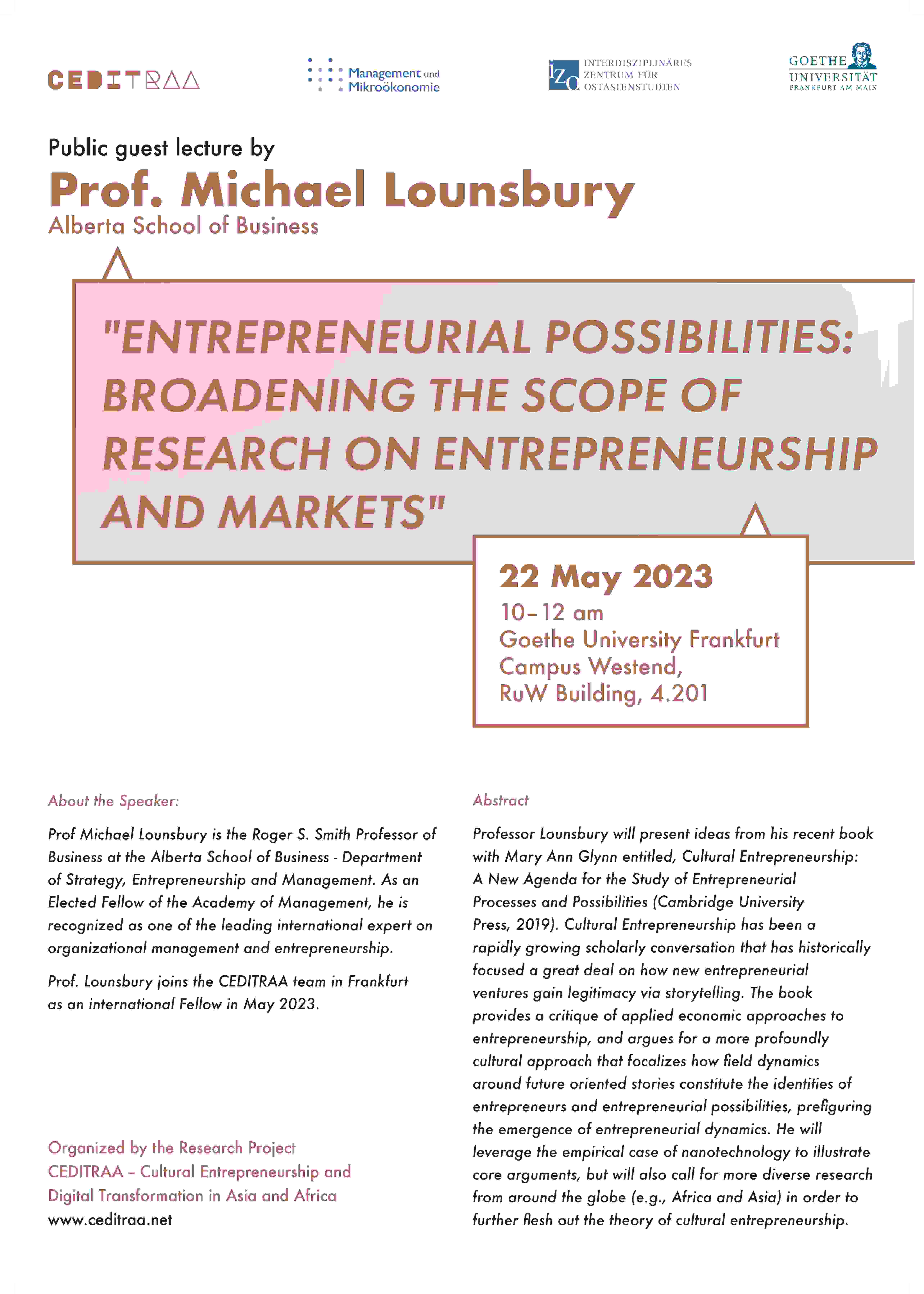
Professor Lounsbury will present ideas from his recent book with Mary Ann Glynn entitled "Cultural Entrepreneurship: A New Agenda for the Study of Entrepreneurial Processes and Possibilities" (Cambridge University Press, 2019). Cultural Entrepreneurship has been a rapidly growing scholarly conversation that has historically focused a great deal on how new entrepreneurial ventures gain legitimacy via storytelling. The book provides a critique of applied economic approaches to entrepreneurship, and argues for a more profoundly cultural approach that focalizes how field dynamics around future oriented stories constitute the identities of entrepreneurs and entrepreneurial possibilities, prefiguring the emergence of entrepreneurial dynamics. He will leverage the empirical case of nanotechnology to illustrate core arguments, but will also call for more diverse research from around the globe (e.g., Africa and Asia) in order to further flesh out the theory of cultural entrepreneurship.
IZO Events

The book talk will take place on 10 May 2023 (6 pm - 7.30 pm) at Campus Westend (PEG 1.135) as well as online via ZOOM The anthology "Korea and the Global Society" (editor: Yonson Ahn) was published by Routledge in February 2023. It covers various fields and disciplines around the theme of South Korea's engagement and exchange with the global society, with a focus on development cooperation, migration and media. The volume focuses on an analysis of South Korea's engagement and reciprocity in the global society, which has evolved from the country's transformation from a recipient of aid and a sender of migrants to a provider of aid and a recipient of migrants
The following two chapters will be presented at this book talk:
"Ex-Periphery: South Korea's Position vis-à-vis the Global Society" (Irina Lyan, Hebrew University of Jerusalem)
"Negotiating Masculinity: Migrant Husbands and Cross-Border 'Marrying-Up'" (Seonok Lee, University of Groningen)
For further information please contact: Prof. Yonson Ahn, Y.Ahn@em.uni-frankfurt.de
IZO Events
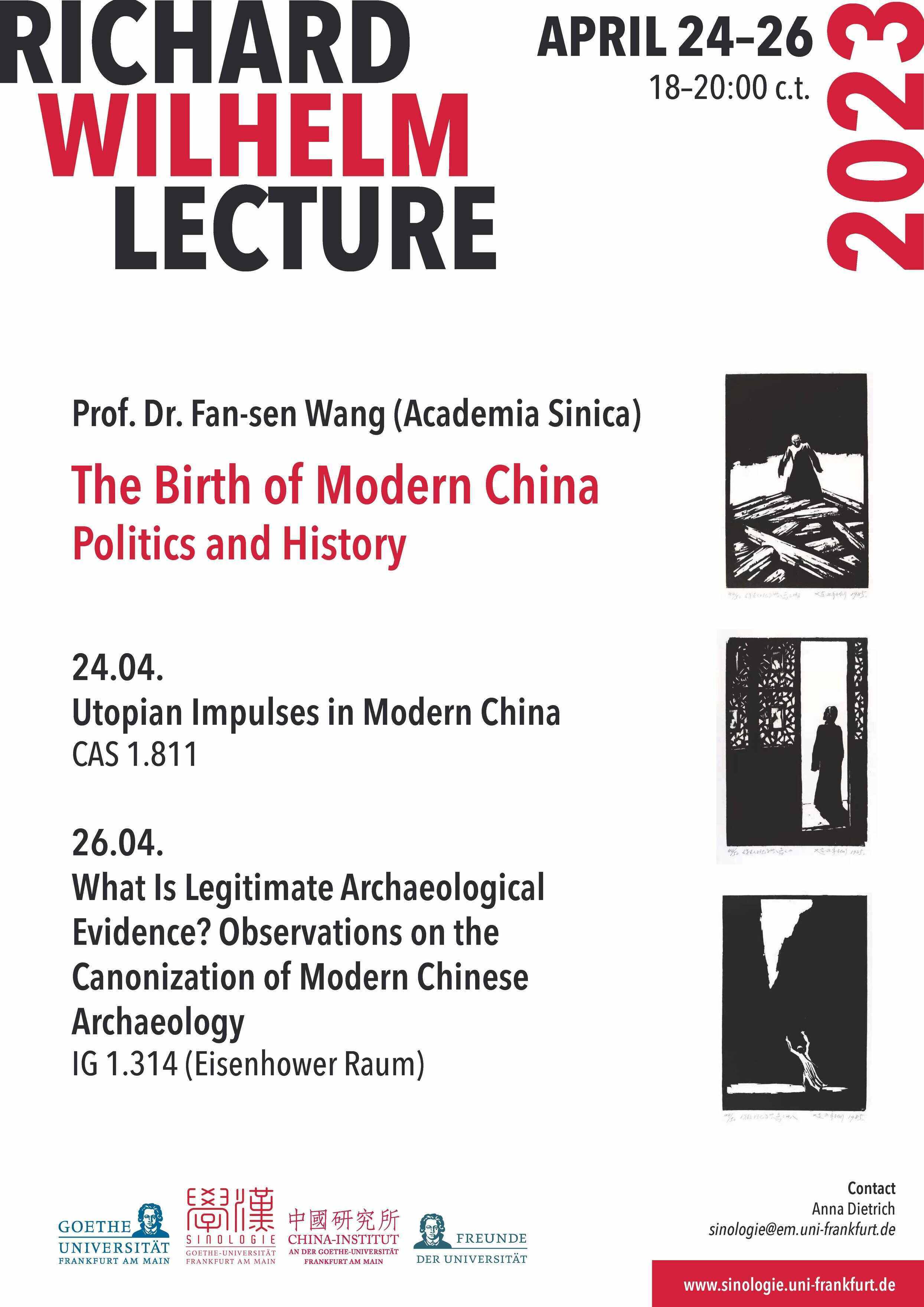
The lectures will take place on 24 April 2023 and on 26 April 2023 from 6 pm at Campus Westend and are open to all interested parties. Prior registration is not necessary.
/24 April 2023, 18–20:00 c.t., CAS 1.811/
UTOPIAN IMPULSES IN MODERN CHINA
This lecture seeks to conceptualize a major shift in Chinese utopian thought with the division of backward-looking and forward-looking utopias. In the wake of the 1898 Reform Movement, a new utopianism that envisioned the destruction of existing social bonds took shape in the /Datongshu/ by Kang Youwei (1858–1927). Inspired by the novel concept of evolution, Kang's utopianism was future-oriented, as he assumed that material and scientific progress could only be achieved by abolishing the Three Bond and Five Relations defined in the Confucian Classics. His idea was a radical break from the traditional Chinese utopian thoughts that were based on ideals to return to ancient morality, as exemplified by stories of “hungry country"—a novelistic utopia where people could withstand poverty and hunger but remain moral—that were popular in the Qing Dynasty. Over the course of just seventy or eighty years, the utopia of morality and poverty found in the hungry country stories gave way to the utopia outlined in the /Datongshu/. With a scientistic belief in human agency, the new utopian thinkers imagined that the social world could be broken down into factors and reassembled in their desired manners. Their future-oriented utopianism exerted enormous influence on modern Chinese reformists and revolutionaries, including Mao Zedong. My categorization not only captures the conceptual transformation from traditional to modern China, but also complements the existing analyses of utopian thoughts, including Zhang Hao's active and passive utopias, and Jay Winter's major and minor utopias.
WHAT IS LEGITIMATE ARCHAEOLOGICAL EVIDENCE? OBSERVATIONS ON THE CANONIZATION OF MODERN CHINESE ARCHAEOLOGY
Amidst the major transition in views of historical evidence in the 1920s, a new model of archaeological research emerged along with the founding of Division of Archaeology at the Institute of History and Philology. Advocates of this new archaeology, represented by Li Chi and Fu Ssu-nien, contended that a modern and scientific approach to research should be centred upon excavation as a process of comprehensive knowledge, rather than mere collection of ancient texts and artefacts. The new archaeologists were deeply discontent with traditional practices of palaeography and epigraphy, which, according to them, narrowly focused on texts connected to the Confucian classics, paid little attention to material condition of artefacts, and thus failed to achieve a holistic understanding of the past. They also distinguished their project from earlier attempts to reform research on ancient China with Western knowledge, such as Luo Zhenyu and Wang Guowei who employed a method of “twofold evidence" by comparing inscriptions on oracle bones and bronze artefacts with traditional written texts. The new vision of archaeological research was put into practice in the subsequent years after 1928, when the Institute of History and Philology launched the project to excavate the ancient Shang Dynasty capital (Yin Xu) in Anyang, Henan. For modern Chinese researchers, the Yin Xu excavation project defined what could be considered legitimate archaeological evidence, and therefore constituted the canon of modern Chinese archaeology.
About the Speaker
/PROF. WANG FAN-SEN/ is a historian specializing in the cultural-intellectual history of early modern and modern China (circa 1500 to 1930). He has written broadly on Chinese intellectual history in the last few centuries. His most important works include /Chang T'ai-yen and His World/ (1985), /Fu Ssu-nien: A Life in Chinese History and Politics/ (2000), /The Genealogy of Modern Chinese Thought/ (2003), and /The Historian and the Historiography in Modern China/ (2008), among others. He received his PhD from Princeton University in 1992. He has taught at universities throughout Taiwan, including National Taiwan University and National Tsing Hua University. Prof. Wang has been Academician of Academia Sinica since 2004 and served as its Vice President and Acting President. He is currently serving as the Chancellor of Taiwan Comprehensive University System. Prof. Wang Fan-sen has been the recipient of many distinguished domestic and international awards. In 2005, he was elected as Fellow of the Royal Historical Society of the United Kingdom.
- Studying at Goethe University
- International applicants
- Faculties
- Overview of study programmes
- Programme for refugees
- GRADE
- Goethe Business School (continuing education)
- Research at Goethe University
- Scientific news
- Goethe Welcome Center (for international researchers)
- Collaborative research projects
- Individual research
- Visiting fellowships
- Endowed chairs
- About the University
- News-in-brief
- University administration
- Campus locations
- Campus life
- University archives (German)
- Rhine-Main-Universities

